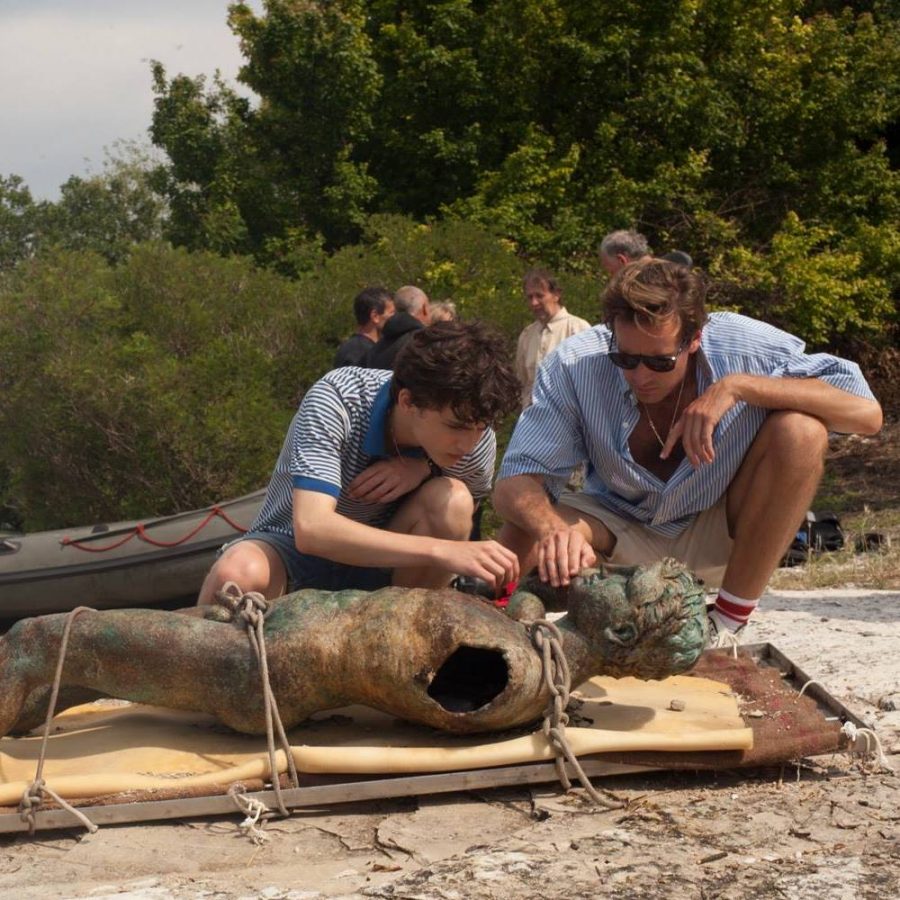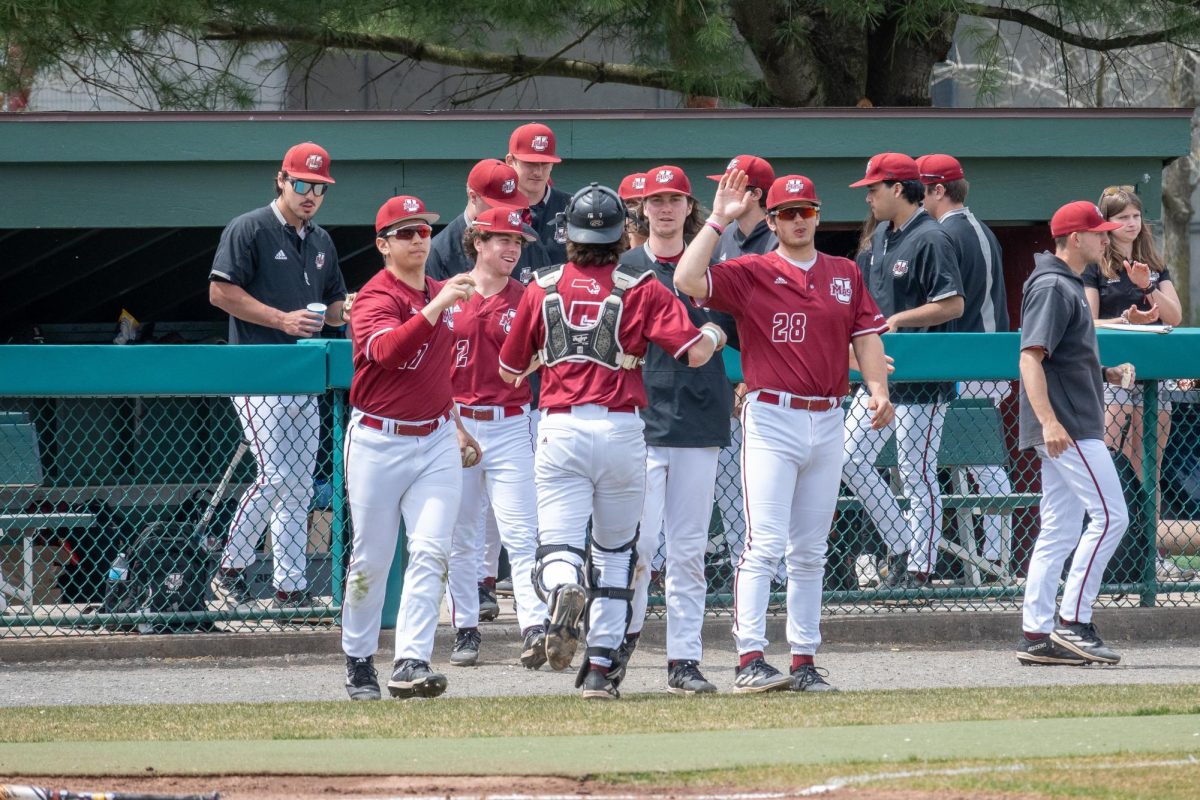The first half of “Call Me by Your Name” is so tightly-wound that one can almost see the veins in its cinematic forehead burst. Every movement, overture and flirtatious gesture between its two subjects is so measured that it churns the skin from inside out.
“My god,” I gasp with what little breath I can still muster. “Just kiss already!”
Ah, but when that volcano erupts—when the romantic union of Elio and Oliver finally manifests at the mid-way point, the second half of the film is a continuous explosive chain of firecrackers. Intuitively, the film understands the unspoken rituals of queer courtship, so rife with false starts, misdirection, missed signals, misinterpreted signals and signals noticed, yet not acted upon.
Every narrative and tonal beat of “Call Me by Your Name” works toward its methodical slow-burn design, and the ingenuity of the film lies in the way its structure reflects the specificity of a queer relationship’s arc. The film has answers to its riddles wrapped within its snaky coils, though those coils are not easily unwrapped.
It’s a frustrating affair—and intentionally so—because it reflects the process that so many queer relationships spring forward from. The societal restrictions placed upon queerdom prevents it from open, consequence-free practice (even more true in the 80s, when this film is set), so every movement must be made with the utmost discretion.
Elio Perlman (Timothée Chalamet) is a Jewish-American teen, who lives with his parents in their summer home on the northern Italian countryside, while his father, an archaeology professor, studies the ruins of ancient civilizations. His father invites Oliver (Armie Hammer), a Jewish graduate student—a brash, know-it-all chad whose extrovertedness initially conflicts with Elio, a sullen, bookish Joy Division fan.
When Mr. Perlman (Michael Stuhlbarg) asks his son to show Oliver around the Boot, Elio is resentful—he’d rather bang away on his piano (What wealthy Ashkenazi Jew isn’t comandeered into to becoming a musical prodigy?) or hang out with his Italian bella. A bond—or perhaps an infatuation—begins to brew between the two, and their kinship is forged on ulterior meanings behind their words and hidden novels written behind subtlest of body language.
The central thrust behind the character development of Elio is how he learns to notice tells. Any queer person knows what I’m talking about. Essential to living under a society that stigmatizes homosocial behavior is recognizing fellow travelers without outing oneself. For obvious reasons, you cannot just walk up to a potential partner and reveal your queerness without risking social ostracization, humiliation or violence.
The story of “Call Me By Your Name,” essentially, is a queer youth learning how to properly engage in the art of cruising—and in a pre-Tinder, pre-Grinder age, that skill requires a mathematician’s calculation. Was that touch of the shoulder a gentle flirtation or an accidental graze? The stress from that ambiguity is overwhelming, yet when the intuitions pay off, the passion can melt a skyscraper.
Much of the cinematography reflects this ritual, where we see exchanged glances between Elio and Oliver as they size each other up and wait for the other’s next move. It is film obsessed with surfaces and what is hidden beneath them. English, Italian, French and Hebrew are all spoken throughout, yet the multiplicity of languages in the film underscore Elio and Oliver’s unique brand of non-verbal communication. We, as audience members, understand bits and pieces, but because of the exclusivity of the meaning behind their gestures, we are always kept at a distance.
While the film is constructed with utmost care and craft—rife with passion and heartache—it is this distance, ultimately, that prevents me from falling love with it as I did “Carol”—another queer film similar in how meticulously it builds to the boiling point of the central romantic affair.
While the second half of the film is a continuous stream of kinetic energy that one can expect from a depiction of love at youth’s halcyon peak (with undoubtedly the sexiest usage of a peach in any film sequence), the first half adopts a deliberate stance against intimacy. We are treated to many beautiful longshots of Southern European pastures, yet interpersonal interactions are generally kept at a distance, a creative decision that makes it difficult to understand the thoughts going on in Elio’s (the main POV character) head. While it makes sense that Oliver’s thoughts should be inscrutable, since much of the conflict revolves around Elio’s attempts to read into the meaning behind Oliver’s gestures, Elio’s state of mind should not be so esoteric—even if Chalamet’s soulful, sensitive, angsty performance is worthy of praise.
Nevertheless, the sparks that fly from the second half, where the distance between Elio and Oliver is closed, more than redeem it (not that the first half was not rife with intrigue). One of the more refreshing aspects of the film is that it avoids the typical tropes of gay love stories. Its main subjects are not closet cases. Both Elio and Oliver are bisexual and show unambiguous attraction toward women.
At the same time, there’s a magnetic pull between them that cannot be ignored. Two Jews dwelling inside the Capital Seat of Catholicism, Elio and Oliver attempt to become one. Closer and closer they bring themselves together, until Elio becomes Oliver and Oliver Elio. They become one, or at least try. In a film about distance, the greatest desire of Elio is to close the gap and forever merge.
Elio and Oliver’s relationship, a fling at its core, is doomed by its finiteness. Two distinct entities cannot remain conjoined forever. It will all be washed away, like the broken hands and heads of the Greco-Roman statues that Mr. Perlman unearths from the Mediterranean Sea. The relics—the memorial keepsakes—are left behind to be cherished, but the historical meaning attached to it, inevitably, is erased forever by the sands of time.
Nate Taskin can be reached at [email protected] and followed on Twitter @nate_taskin.




















